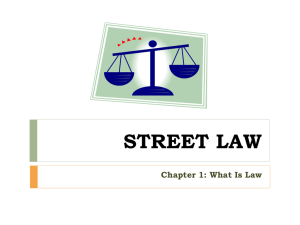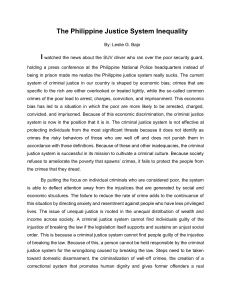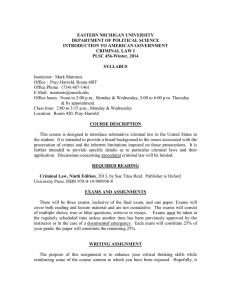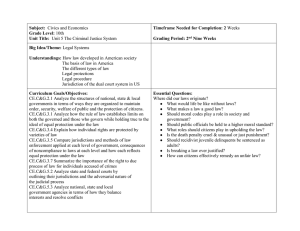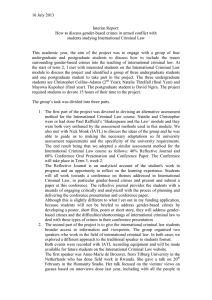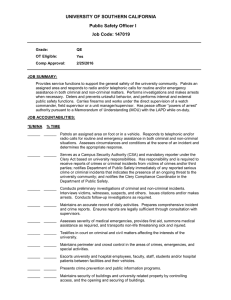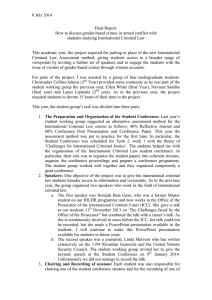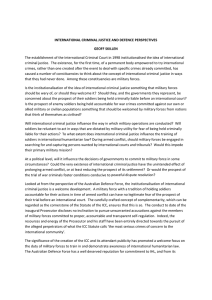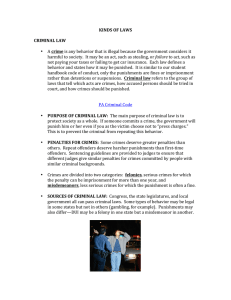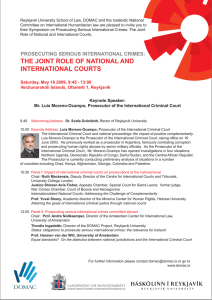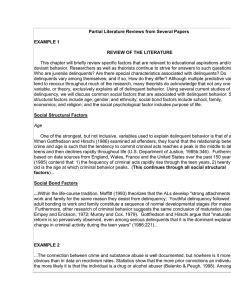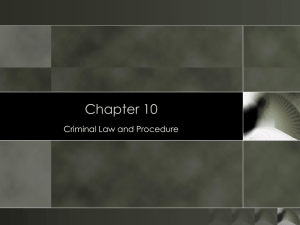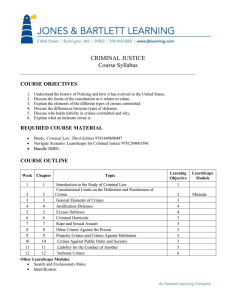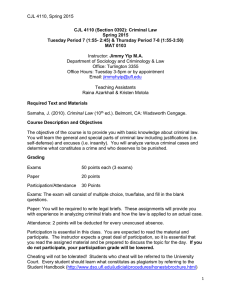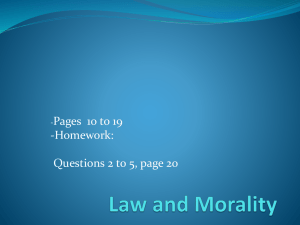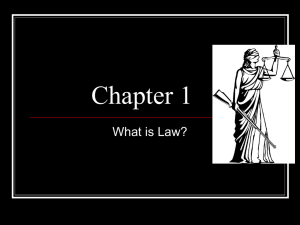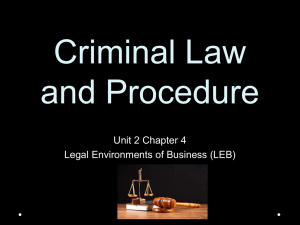What is Law?
advertisement
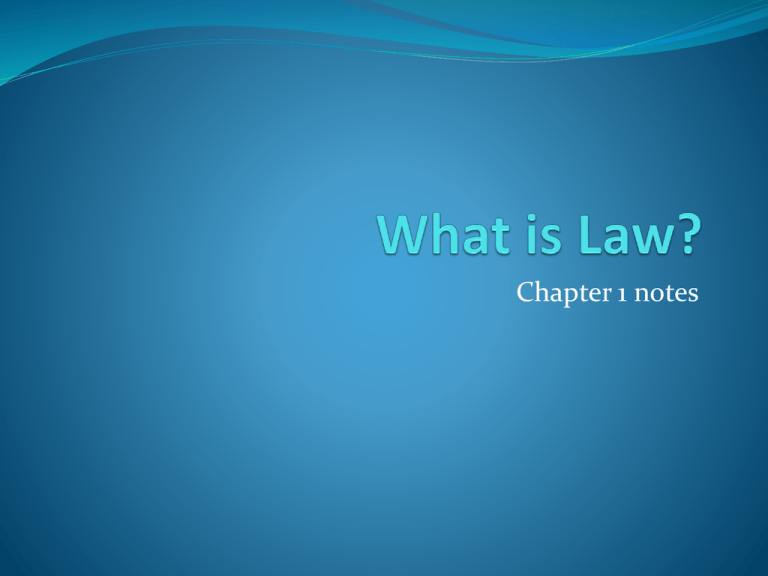
Chapter 1 notes What is Law? Definition – Rules and regulations made and enforced by government to regulate people’s conduct. Laws generally reflect and promote a society’s values and our legal system protects basic human rights. Our legal system is influenced by society’s traditional ideas of right and wrong Why do we have laws? Without them there would confusion or disorder They prevent people from taking advantage of one another Societies recognize the need to regulate people’s conduct Goals of Legal Systems 1. 2. 3. 4. 5. 6. 7. Protecting basic human rights Promoting fairness Helping resolve conflicts Promoting order and stability Promoting desirable social and economic behavior Representing the will of the majority Protecting the rights of minorities Laws can be based on moral, economic, political, or social values. Economic Values Deal with the accumulation, preservation, use, and distribution of wealth. Ex. Requiring citizens to pay taxes Ex. Companies may deduct the cost of advertising from their income tax Ex. Owners may sue trespassers for entering their property Moral Values Ex. Prostitution is illegal Ex. Repayment of Japanese internment camp survivors Political Values Reflect the relationship between government and the individuals Ex. 18 year olds have the right to vote Ex. Use of mail in ballots Social Values Concern issues that are important to society. Ex. Free public schools Girls have the right to the same sports opportunities as boys 18 year olds can join the military w/out parental permission Many laws combine moral, economic, political, and social values. Human Rights Rights we get simply for being human. We get these rights as soon as we are born until we die. Universal Declaration of Human Rights Statement of basic human rights and standards for government that has been agreed to by almost every country in the world. Proclaims that all people have the right to liberty, education, political and religious freedom, and economic well-being. Bans torture and says that all people have the right to participate in the government process. Civil Court v. Criminal Court Civil action – a noncriminal lawsuit, brought to enforce a right or redress a law Civil Law – All law that does not involve criminal matters such as tort and contract law. Civil law usually deals with the private rights of individuals, groups, or business. A civil case is brought by the plaintiff—the person or company harmed— Civil Court v. Criminal Court Criminal law – The branch of law dealing with crimes and their punishments Crime- An act or failure to act that violates a law and for which a government has set a penalty. (usually fine, jail, or probation) Government brings case against a defendant, the person accused of committing the crime Misdemeanors Less serious crimes that carry a prison term of one year or less. (Simple assault, minor theft, etc) Felonies More serious crimes that carry a prison sentence of more than one year. (Murder, robbery, etc.) Thank you!!!!!!!!!!!!

